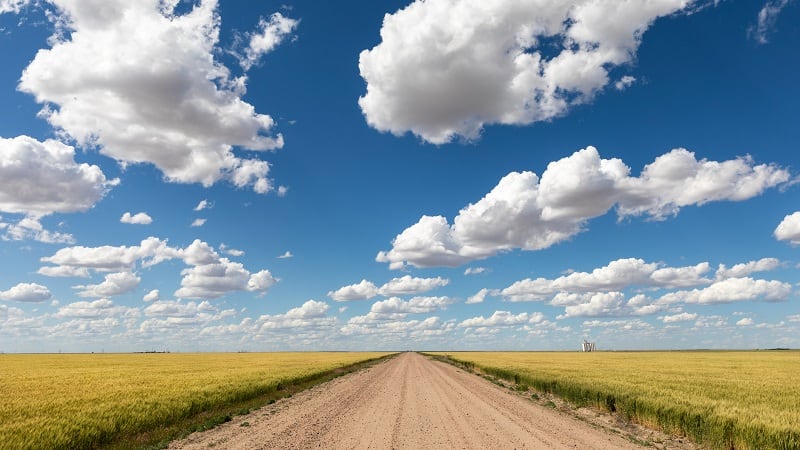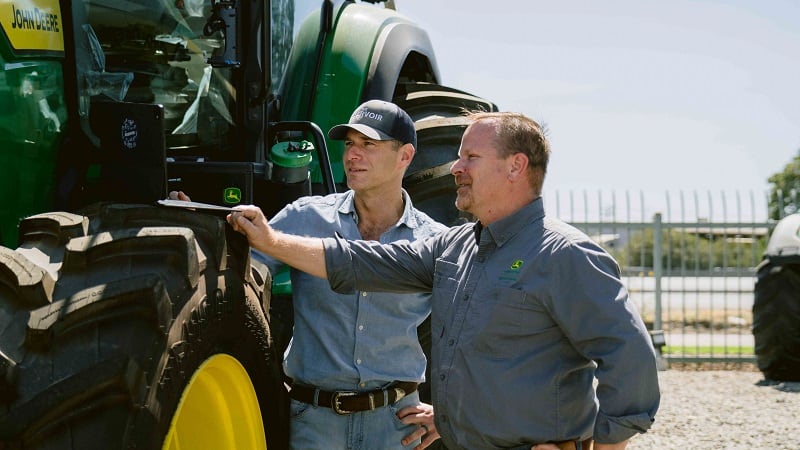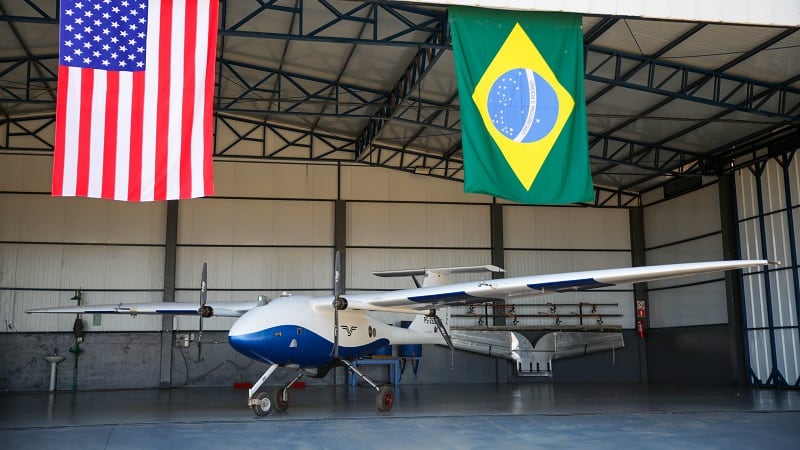A single piece of technology — whether it is a weather sensor, drone, or an analytics platform — often is not enough to address an issue on the farm. However, by integrating different technologies and combining them with an in-field agronomist, farmers can address a host of pest and plant issues, which is what Kelly Hills Unmanned Systems is demonstrating with its innovation accelerator program called the Forge.
Established in 2024 as a wholly owned subsidiary of crop-dusting and ag retailer Heinen Brothers Agra Services, Kelly Hills was founded to help agtech companies come together to address farmers’ problems through automation, Lukas Koch, CEO of Kelly Hills and CTO at Heinen Brothers Agra Services, told AgTechNavigator.
To support this goal, Kelly Hills created the Forge to serve as “an agricultural proving ground,” working with different agtech companies to integrate their disparate products. These combined solutions are then showcased at Kelly Hills’ annual field days, with the 2025 edition concluding earlier this month.
The 2025 Forge class included spray droplet analysis company Drop Flight, Heinen Brothers, AI-based drone spraying startup Precision AI, electric drone maker Pyka, pest detection provider Scanit Technologies, aerial-scouting software company Taranis, and original equipment manufacturer Yamaha.
In the field test, Kelly Hills demonstrated how the Taranis platform can detect diseases like corn tar spot, and then be remotely treated through drone technologies, like Pyka, Drop Flight, and Precision AI. First reported in the US in 2015, corn tar spot is a fungus disease that learn black marks on the plant, which can reduce yields, according to the University of Minnesota.
“We would fly two miles beyond visual line of sight, go ahead and treat the area, and fly home to simulate that ... you can actually be doing this in a remote and very autonomous way. You do not have to load up your drones, drive to the edge of the field, and do that day after day and have a bunch of extra logistics. You can just have a drone that stays in one spot at a hub and go treat and manage these fields again and again and again,” Koch said.
Kelly Hills forges a new offering with SpraySense
Through its Forge collaborations, Kelly Hills developed its first product, SpraySense, an AI-powered program that uses aerial imagery, weather data, and disease risk models, to help growers find the best time to apply fungicide to corn and soybean crops, Koch explained. SpraySense is compatible with both Yamaha and Pyka vehicles, as shared in a press release.
Kelly Hills showcases partners at Farm Progress Show
Kelly Hills will be one of many ag companies at the 2025 Farm Progress Show in Dectaur, Ill., taking place Aug. 26-28. Kelly Hills will represent its partners and their products at booth #1133.
Kelly Hills never set out to develop its own capabilities, but the company saw an opportunity to help growers protect their crops with precise data on pest problems, he said. The company plans to expand beyond fungicide to include biologicals, fertilisers, herbicides, and insecticides, he added.
“For so long, you could get your insect report analytics down to a 10-by-10-square-foot area. But how are you going to treat that anyway? You are just going to treat the whole field. And so if you do not actually have a platform that can go treat these small areas easily, then the product that some of these sensing companies are trying to sell has less value because there is no way to manage it in that manner,” Koch elaborated.
Giving U.S. growers in the breadbasket a break
Kelly Hills is also working to bring automated tractors to rural farms in Kansas through a public-private partnership called the Rural Autonomous Mobility Program (RAMP), made possible through the Kansas Department of Transportation’s Innovative Technology Program, as shared in a separate press release.
Also, revealed at Kelly Hills’ field days, RAMP will launch a pilot project in Kansas in 2026, which will test automated tractors driving to farms and hauling farming equipment and supplies across rural roads, Kelly Hills added.
The need for ag automation is increasing, as younger generations are not entering the agriculture industry to replace growers who are retiring, and farm sizes are increasing due to larger farms buying smaller ones, Koch noted.
Additionally, automation is gaining ground in other industries, like ridesharing and logistics, so focusing on agriculture made a lot of sense given the need, he added.
“We are driving cars autonomously through the streets of San Francisco. ... In other areas, we have autonomous trucking, so full-size 18-wheelers autonomously training between Dallas and Houston. Walmart is working on it. There is a bunch of autonomous things happening on the roads, ... and there was a huge need to tackle tractors — to give a little bit of breathing room and quality of life back to some of these people who are working in the breadbasket of America,” Koch elaborated.





